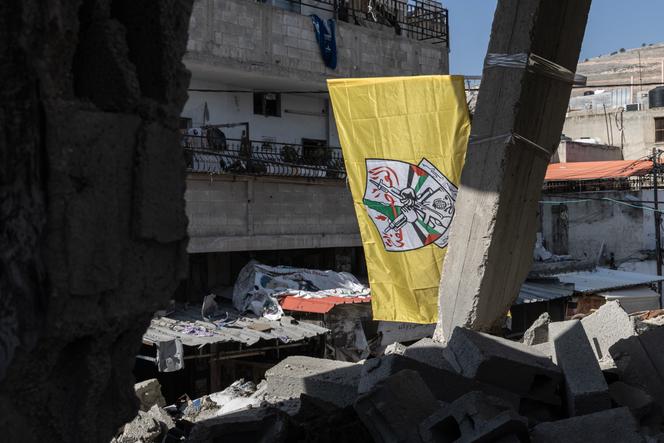


All that remains are the ruins of what was once the headquarters of Mahmoud Zoufi, commander of the al-Aqsa Martyrs' Brigade, the armed wing of Fatah, and guardian of the Balata Palestinian refugee camp in Nablus, the largest in the West Bank. On November 18, Israeli missiles left only two concrete slabs threatening to collapse as a first floor and a roof, but not frightening the outdoor vendors and customers in the small street. The strike killed five people, including "Zoufi," who was as feared by the Israelis as he was revered by his supporters.
On the same day, an Israeli army spokesperson said it was the first time an aircraft had hit a target in Nablus since the second Intifada in 2000. While the use of sophisticated weapons has limited the number of victims, the choice of the skies is a reminder that the deadly Hamas attack on Israeli territory on October 7 has changed the situation. Israel does not want a second internal front on the West Bank, carried by other armed Palestinian groups while the war rages on in Gaza.
The spokesperson said nothing about the human intelligence needed for the operation. Yet this is a key issue. According to the United Nations (UN), Balata is home to 24,000 people living in densely populated areas and a labyrinthine network of narrow streets. This is ideal terrain for defeating a modern army like Israel's.
Without local help, there's no chance of unlocking the secrets of this confined environment. Even Palestinian Authority forces do not venture into this enclave, described by some camp residents as the "living heart of the revolution in Palestine." Responsible for public security and the fight against terrorism, they are hated because of the coordination they maintain with Israel in these territories occupied by the Jewish state.

Suddenly appearing in his car at the site where his brother, "Zoufi," lost his life, "Dahlan," a nom de guerre referring to a former Palestinian intelligence chief, gave his opinion on his death. "We know that the Israelis have collaborators in the camp and that cooperation with the Palestinian Authority has never been so strong since October 7," he said in fluent English. "The Authority provides information on our weapons, our phones, our cars and our movements," he said. But did it go so far as to help the Israelis kill his brother? He was slow to answer: "Maybe yes, maybe no..."
"Dahlan" then stopped next to two young men sitting on the terrace of a shop with the shutters down. They are "Zoufi's soldiers," as they call themselves, for whom "the camp is nothing since the death of their 'father.'" Their presence, in broad daylight, in the streets of the camp, is unusual − usually, they patrol at night. This confirms a rumor. The camp was buzzing with the return of the Balata Brigade's number two, who escaped from a Palestinian Authority detention center two days earlier.
You have 70% of this article left to read. The rest is for subscribers only.
